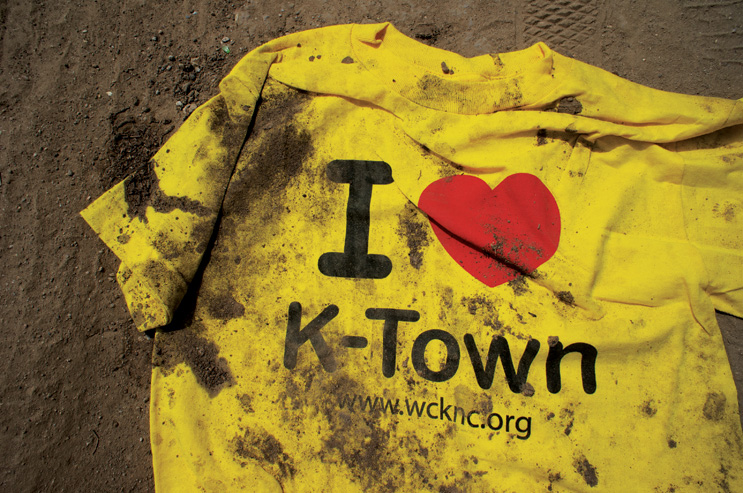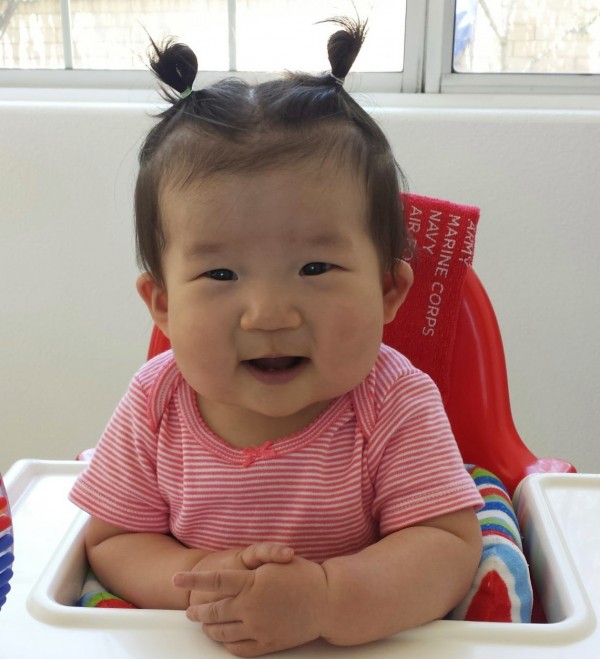by SUEVON LEE | @suevlee
editor@charactermedia.com
Just one week before the Los Angeles City Council primary races this coming Tuesday, a federal judge in California ruled against a group of Koreatown residents who challenged the city’s redrawn boundaries of electoral maps in 2012 that sliced up the neighborhood into multiple districts.
In her Feb. 24 ruling, U.S. District Judge Consuelo B. Marshall said she found no evidence that the city was “predominantly motivated by race” when it created the new boundaries, which the plaintiffs alleged diluted and negatively impacted the voting power of Koreatown residents.
Tuesday’s primary race for Council District 10, which spreads across L.A.’s city center and includes most of Koreatown, features two key players from 2012’s contentious redistricting process, in which L.A.’s Korean American community rallied in large numbers to protest the proposed divisions, voicing their dissent in heated public hearings.
Grace Yoo, an attorney, a leader against the 2012 redistricting and the former executive director of the Korean American Coalition, is seeking to oust District 10 incumbent Herb Wesson in this year’s election. As the City Council president, Wesson oversaw the map-making process in 2012 and is accused in the lawsuit of redrawing the lines so as to boost the percentage of African American registered voters in his district—and in so doing, splitting off parts of Koreatown’s electorate.
While L.A.’s sprawling Koreatown has never previously been incorporated into a single district, neighborhood advocates, citing historically absent Korean and Asian American representation on the 15-member City Council, urged 2012 to be the year to change that. The redistricting process occurs only once every 10 years to account for population and demographic shifts.
The rancor over the redrawn districts also stems from Koreatown residents’ frustrations with the slow pace of neighborhood improvement under Wesson’s leadership, even as the veteran councilmember has drawn campaign contributions from a sizable portion of Koreatown businesses and merchants requiring city alcohol permits.
“To this day, Koreatown has no park or recreation center, no athletic facilities, no community center, no performing arts center, no senior citizen housing, and a shortage of affordable housing,” the redistricting lawsuit filed in July 2012 stated.
Advocates, to no avail, pushed for the commercially thriving neighborhood—which the Wilshire-Center Koreatown Neighborhood Council estimates as having a population of 95,324 that is 52.4 percent Latino and 35.4 percent Asian—to be folded into a single district: Council District 13, which includes the areas of Historic Filipinotown and Thai Town, to create a more concentrated Asian American voter base.
Yet the city’s redrawn boundaries in the end reflected a new Council District 10 in the shape of a “fat turkey,” as LA Weekly put it. The new boundaries claimed most of Koreatown’s commercial corridors, preserving an important source of campaign funding for Wesson, while it folded in historically African American neighborhoods from District 9.
The redrawn ordinance was approved by the council, by a 13-2 vote, in June 2012.
Spearheaded by Yoo’s efforts, angry Koreatown residents turned to the federal court system to challenge a process they claimed was secretive, lacking transparency and blind to the community’s concerns. A redistricting commission comprised of individuals appointed by city council members, the mayor and other city officials was tasked with seeking public input throughout the process and advising the council on the new boundaries.
Named plaintiffs Peter Lee, Miri Park, Ho Sam Park, Yonah Hong and former KoreAm staffer Geney Kim—all identified as registered voters in District 10—alleged that the city’s redistricting scheme constituted racial gerrymandering by “packing” African American voters into the district and excluding Koreatown voters from a single district apportionment, preventing these residents from “obtaining a City Council resident who best represents the shared socioeconomic, cultural, linguistic, public health and other common interests of the Koreatown community,” according to the complaint.
The lawsuit asserted that the City of Los Angeles used race as the overriding consideration in redrawing district lines, in violation of the equal protection clause of the U.S. Constitution. It referenced emails exchanged between council members and statements uttered by Wesson in other settings as evidence.
Indeed, the political veteran was recorded in a ministers’ gathering after the redistricting vote as saying that, when it came to the redrawn maps, he “did the very best I could with what I had”—continuing, “I was able to protect the most important asset that we as black people have, and that’s to make sure that a minimum of two of the council people will be black for the next 30 years,” according to the Los Angeles Times.
In her 24-page ruling last Tuesday, Judge Marshall sided against the plaintiffs. She said she saw no evidence that race was the predominant factor in drawing up the new boundaries and that every change to District 10 “satisfied a traditional, non-racial, redistricting purpose.”
She also said that District 10 was “a multiracial district where no one racial group constitutes a majority” and that 2012’s redistricting only increased the district’s African American voting population from 36.8 percent to 40.5 percent, or by a 3.7 percent change.
Nevertheless, the judge made note of the fact that the evidence demonstrated that “some individuals involved in the redistricting process (namely Commissioner [Christopher] Ellison and Council President Wesson) may have been motivated by racial considerations.” (Ellison, it should be noted, was one of Wesson’s appointees to the redistricting commission.)
But, she added, “that one commissioner expressed racial concerns and one councilmember praised the redistrict ordinance after it was passed cannot be imputed to prove the city’s motivation.”
Although race can be used as a factor in the redistricting process, it cannot be the primary consideration, and it was the plaintiff’s burden to show otherwise to the court in this case.
The parties in this three-year legal battle had been awaiting a ruling from Marshall ever since last summer, when both sides moved for a judgment in the case based on facts presented in court papers.
The lawsuit consolidated a separate complaint filed by registered voters in Council Districts 8, 9 and 10 who also alleged an equal protection clause violation over the city’s inclusion of the two historically African American neighborhoods into District 10 and the formation of a majority Latino district in the 9th District. The judge also ruled against those sets of plaintiffs.
Hyongsoon Kim, senior counsel at law firm Akin Gump Strauss Hauer & Feld and an attorney to the Koreatown plaintiffs, told KoreAm that his clients are considering a possible appeal of the ruling.
“We respect Judge Marshall’s decision but do not agree with it, given the uniquely strong evidence in this case that the city redrew city council district lines based predominantly on race,” he said. “Given that evidence, we believe Judge Marshall should have allowed plaintiffs an opportunity to present their case at trial and required the city to explain its actions at trial.”
Through a spokesman, Wesson said about the ruling, “The city attorney’s office did an excellent job advising the city throughout the process, along with our outside counsel Remcho, Johanson & Purcell. It’s now time to move on with the city’s business.”
Yoo did not respond to a request from KoreAm regarding the ruling. In an interview with USC Annenberg’s political news blog, Neon Tommy, she said, “I think it’s very important that we have another woman at the table. I think it’s important to have an Asian voice at the table. The lines are drawn so that this was not supposed to be done. I’m really one of those people that if you keep pushing me, I’m going to stand up.”
Yoo and David Ryu, who is running in Tuesday’s District 4 primary race, are the only Korean American candidates in the field for City Council this year.
___









